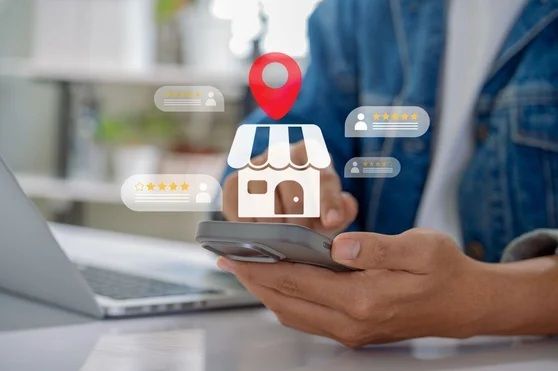The Future of Marketing Strategy: 5 Predictions for 2025

Summary: Explore WSI’s 2025 digital marketing predictions and see how last year’s forecasts measured up. Stay ahead in the evolving digital landscape.
It’s almost 2025, and while we’re still waiting for flying cars and robot butlers to become a reality, the world of marketing strategy is about to take some exciting leaps. And unless you’re a newbie to the WSI blog, you know that we take out our trusty crystal ball every year, don our fanciest robe, and make five marketing predictions for the year ahead. 🧙🔮
Not to toot our own horn, but I’d say that we’re pretty experienced with this prediction thing, given that we’ve been doing this since 2014 (you can check out our predictions posts for 2020, 2021, 2022, 2023, and 2024 here). And this is the scorecard we created to help determine how well we did (we’ve been rocking the below scoring matrix since 2014):
- Oracle (+2) – when we’re so right, it’s like we channeled that nice lady from The Matrix
- Oracle In-Training (+1) – we didn’t quite see the whole picture, but hey, we still saw the future
- Clear As Mud (0) – we weren’t right, but we weren’t wrong, either
- Just A Bit Outside (-1) – we tried to paint the corner of the plate, but we didn’t get the call (I’m a big baseball fan)
- Swing And A Miss (-2) – we took a swing at it, but we weren’t even close
So, before we peer into the future, let’s look back at how well we did last year. Here’s what we said would happen in 2024:
#1: Short-Form Video Content Remains Dominant
Grade: +2
Short-form video platforms like TikTok, Instagram Reels, and YouTube Shorts have established dominance by aligning with consumer behaviors favoring bite-sized, engaging content. These platforms excel at combining entertainment with eCommerce through integrated shopping features, enhancing both brand visibility and conversion rates.
Short videos, often under 60 seconds, thrive because they cater to shrinking attention spans and provide seamless opportunities for engagement, such as challenges and viral trends. The trend’s growth was fueled further by brands leveraging these formats to drive product discovery and engagement efficiently.
Moreover, these platforms’ algorithms are designed to promote content that garners immediate attention and interaction, encouraging users to continuously engage with new content and discover a broader range of creators and brands. As a result, short-form videos have become an essential component of modern marketing strategies, offering a versatile and potent vehicle for brands to convey their messages and achieve their marketing goals in an ever-changing digital environment.
#2: AI Becomes Your Go-To Tool
Grade: +1
AI tools became mainstream in 2024 and indispensable for various functions, ranging from content creation and data analysis to campaign optimization and customer engagement.
However, search engines like Google and Microsoft Bing retained relevance by incorporating generative AI elements into their platforms rather than being displaced by new AI-driven search mechanisms. This strategic blend ensured that users continued to engage with these platforms in a familiar yet enriched manner, demonstrating the resilience and adaptability of established search engines in the evolving digital ecosystem.
#3: The Way We Search is Changing (Voice & SGE)
Grade: -1
Voice search usage grew, but its integration into mainstream search habits didn’t revolutionize search behavior as expected. While we’ve witnessed an increase in the use of voice search technology (due to the growing popularity of voice-activated devices like smart speakers and smartphones equipped with virtual assistants such as Alexa, Siri, and Google Assistant), voice search has not yet managed to alter the way people conduct their online searches fundamentally. The expectation that voice search would become the dominant searching mode never materialized.
Moreover, while Google introduced Search Generative Experience (SGE) to improve search relevance through AI, user adoption lagged behind predictions. Many users have not fully engaged with SGE, partly due to a lack of awareness about its capabilities and partly because they are accustomed to the existing search formats that have served them well over the years.
This reveals a critical insight: while technology may have advanced, behavioral change among users moves at its own pace. Users often continue to rely on traditional search habits, with AI-based tools being supplemental rather than transformative. And the challenge moving forward will be to bridge the gap between technological innovation and user adoption, ensuring that these tools become an integral part of the digital search experience.
#4: Customer Service Becomes More AI-Driven
Grade: +2
AI-powered customer service solutions became a staple in 2024, with businesses leveraging chatbots and virtual assistants to enhance response times and operational efficiency. Tools like automated support and self-service options significantly reduced dependency on human agents, leading to better customer experiences and reduced wait times.
As a result, businesses that embraced these AI-driven solutions reported significant improvements in customer satisfaction and greater operational scalability. The efficiency gains achieved through AI integration allowed businesses to reallocate human resources to more complex and value-added tasks, maximizing productivity and enhancing overall business performance.
The widespread adoption of AI in customer service is a testament to its transformative potential, setting a new standard for customer interaction in the digital age.
#5: The Physical and Digital Worlds Converge
Grade: 0
While augmented reality (AR) and virtual reality (VR) technologies evolved, widespread adoption didn’t materialize as predicted. Although some industries, such as retail, have implemented AR solutions to enhance shopping experiences, these technologies remain niche and experimental for most businesses.
Consumers are gradually engaging with AR/VR, but the expected mainstream shift toward immersive experiences is still on the horizon, suggesting this prediction remains in a transition phase.
Final Score: +4
Overall, we stayed on target with most of our predictions, reflecting how trends around short-form video, AI tools, and customer service evolved as expected. However, adoption gaps remain in voice search and AR/VR, which we’ll continue to monitor closely in the coming year.
Still, it’s not too shabby! 🔮
So, without any further ado, let’s dive into our predictions for 2025!
Our 5 Marketing Strategy Predictions for 2025
Let’s turn our gaze to the future, proposing what we believe 2025 holds for the digital marketing world:
#1: There Will Be Drastic Growth in Incorporating AI to Help Make Data-Driven Decisions:
In 2025, the landscape of data-driven decision-making is set to transform dramatically, fueled by the advancements in AI-powered predictive analytics and the further incorporation of AI into all business operations. No longer confined to merely reporting past performance, AI will usher in a new era where predicting future trends becomes the norm and where AI tools are simply part of the team.
This shift will empower businesses to anticipate market shifts and consumer behaviors with unprecedented accuracy, allowing for proactive strategy adjustments. Real-time optimization will become a cornerstone of marketing strategies as AI systems continuously analyze data streams to refine campaigns on the fly. Moreover, with the rise of AI Agents and the increase in automatable tasks and workflows, organizations can empower workers to develop and manage more complicated projects.
By leveraging AI’s capabilities, businesses can influence market trends, set new industry standards, and drive innovation. This proactive stance will enhance your competitive advantage and foster a culture of continuous improvement and adaptability, positioning companies to thrive in the fast-paced world of digital marketing.
#2: Expect a Boom in AI Generative Search
The future of search is moving rapidly toward a more conversational, AI-driven experience that will fundamentally change how people find information online. Rather than typing cryptic keyword phrases like “dentist near me” or “ice cream Boston,” users are increasingly comfortable having natural conversations with search engines, asking complex questions as they would to a friend or expert.
As our Convention Keynote speaker, Dale Bertrand, pointed out from the stage, “Humans are lazy. We would rather get a direct answer that might be wrong than an accurate answer that requires us to take on a research project to find it.“
This shift in search behavior has significant implications for content strategy. Traditional educational content that has worked well for SEO in the past may become less effective as Google’s AI provides direct answers to informational queries, leading to more zero-click searches. Instead, businesses need to focus on creating unique, perspective-driven content that AI cannot easily summarize, such as comparative analyses, interactive tools, and data visualizations. This content should target middle-of-funnel searches where users actively evaluate solutions rather than just seeking basic information.
The challenge for businesses going forward will be appearing in these AI-generated search results. Unlike traditional SEO, which relies heavily on keyword targeting and technical optimization, success in generative AI search feels more like Digital PR and branded SEO. Businesses need to be prepared for search outside of Google, and brands need to be consistently cited across the web with their products or services to appear in generative AI chat responses. This requires a different content creation and distribution approach, emphasizing establishing authority through unique perspectives, expert opinions, and valuable middle-funnel content that helps users make purchasing decisions.
#3: Increase in In-App, Native Shopping Experiences
In-app shopping experiences are poised to revolutionize how we interact with our favorite social media platforms (such as Instagram or TikTok), seamlessly blending discovery and purchase into a single, fluid journey.
Imagine scrolling through your feed, stumbling upon a must-have item, and purchasing it instantly without ever leaving the app. This frictionless shopping experience will eliminate the need to switch between apps or websites, streamlining the consumer journey and reducing the barriers to purchase. As social media platforms continue to integrate advanced eCommerce functionalities, users will enjoy a more intuitive and engaging shopping experience where inspiration and transaction coexist in harmony.
As Sofia Hernandez, the Global Head of Business Marketing for TikTok, said in their 2024 Shopping Trend Report, “The brands that harness these insights can forge deeper, more meaningful relationships with their audiences, creating loyalty that transcends the temporary allure of must-have products while those that cling to outdated strategies risk being left behind.“
This is the future of online shopping. And this evolution will not only enhance user satisfaction but also provide brands with unprecedented opportunities to capture consumer interest and drive sales directly within the social media ecosystem.
#4: The (for real now!) Rise of Voice Search and Voice Commerce
Look out—we’re doubling down on this prediction! In 2024, we may have witnessed the initial stirrings of voice search and voice commerce, but we’re convinced that 2025 is set to be the year when these technologies truly take center stage.
Why are we so convinced? Well, here are some voice search numbers that have us excited:
- $100B: the expected value of the global smart speaker market by 2033
- 77%: percentage of young adults (18-34) who use voice search on their smartphones
- 75%: percentage of US households expected to own a smart speaker by 2025
As more consumers become accustomed to using voice-activated devices, businesses must optimize their online presence to cater to voice queries, which often differ from traditional text searches. This means adopting a more conversational tone that mirrors everyday speech patterns, making it easier for virtual assistants to understand and respond accurately.
Say hello to optimizing for SEO and VSO (voice search optimization).
As people grow more familiar with voice technology, the barrier to entry will shrink, encouraging even more widespread adoption. This shift will enhance user experience and allow brands to engage with their audience more naturally and intuitively.
#5: Hyper-Personalized Experiences and Communications Will Help Brands Increase Trust and Community Engagement
Building trust through personalized experiences will reach new heights in 2025 as brands move beyond the rudimentary tactics of name insertion and generic product recommendations. The future of personalization lies in its ability to delve deeper into the nuances of individual consumer preferences, behaviors, and emotions.
Why is trust so crucial for a brand? Well, with the rise of AI and digital technologies, customers have immediate access to information and can quickly verify companies’ claims. This means businesses must focus on being consistently honest and transparent in their operations, and trust must be cultivated throughout every level of an organization, much like a culture of safety.
As Natalie Doyle Oldfield explained in her 2024 WSI Global Convention Keynote, “Trust is like safety in the workplace—when you focus on it, and everybody is striving to become trusted and be trustworthy, you have a safer environment, and then it permeates throughout your entire organization.” Companies that understand this and actively work to build trust equity across all touchpoints—from communication clarity to consistent service delivery—will have a significant competitive advantage, especially considering that currently, only 49% of people trust businesses to do the right thing.
So, by leveraging advanced AI and machine learning algorithms, companies will craft hyper-personalized interactions that resonate personally, creating a sense of genuine connection and understanding. Imagine receiving a tailored message acknowledging your recent purchase and anticipating your future needs based on your unique lifestyle and preferences.
This level of personalization will foster a deeper trust between consumers and brands, as customers feel seen, valued, and understood in previously unimaginable ways. As a result, businesses that embrace this sophisticated approach to personalization will not only enhance customer loyalty but also drive long-term growth by building authentic relationships that stand the test of time.
What Does the Future of Marketing Look Like?
As we look ahead to 2025, our predictions paint a vibrant picture of the marketing landscape, with technology continuing to drive innovation and reshape how brands connect with their audiences. As we embrace these changes, the key will be to remain agile, leveraging new tools and strategies to create meaningful, personalized experiences that resonate with consumers.
As always, your WSI Consultants are here to help you navigate this ever-shifting world of marketing and AI. If you want to explore any of the tactics shared here, please get in touch today!
From everyone here at WSI, we wish everyone reading this a happy and healthy holiday season and a fantastic start to 2025! May the new year bring you success, joy, and endless opportunities in the ever-evolving world of digital marketing.
About the Author
Rick spent 20 years in the insurance industry in finance, primarily developing reporting platforms for B & C stakeholders. His ability to speak to consumers of data (managers and analysts) and translate their needs to programmers led him to start his own digital marketing agency in 2004 to develop data driven solutions for business owners.
The Best Digital Marketing Insight and Advice
We are committed to protecting your privacy. For more info, please review our Privacy and Cookie Policies. You may unsubscribe at any time.
Don’t stop the learning now!


